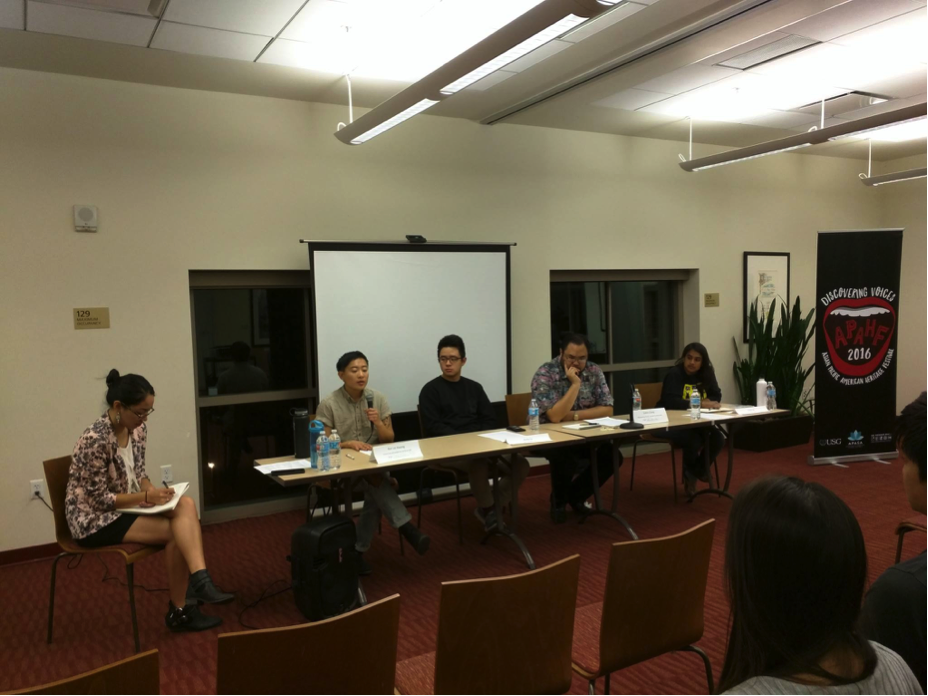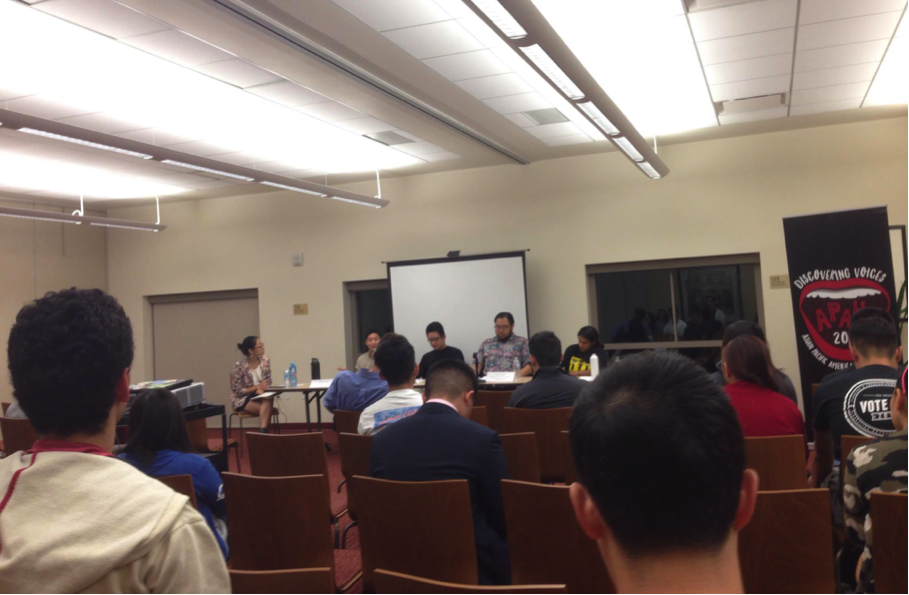API Activism: Where Do We Fit in the Black Lives Matter Movement?
Hi everyone! I’m Michelle Su, one of the APASA interns for this year. Last Wednesday, February 10 was our first APASA-sponsored APAHF event, “API Activism: Where do we fit in the Black Lives Matter movement?” Since February is Black History Month, we decided to incorporate API solidarity with the Black Lives Matter movement into our original discussion topics of the history and current issues in API activism. The event featured a short presentation on the history of API activism, followed by a panel discussion with various API activist leaders in the community.
The panelists talked about a variety of topics, ranging from their work in activism and the API communities, their politicization, their involvement with Black Lives Matter, and how they address anti-blackness in their lives. Ren-Yo Hwang spoke on their work with the California Coalition for Women Prisoners and how by talking with the prisoners, they were able to see firsthand the injustices that arise from stereotypes and biases. One story Ren-Yo shared involved a woman who had served much longer time in prison than her Asian friend who had actually planned the theft. This difference of rulings was related to racial stereotypes and the friend’s connections that allowed her to get a lighter sentence. Ren-Yo also discussed the discrimination that queer and transgender people face in dealing with the law.
When asked about how they became politicized in the first place, the panelists told stories about their life experiences and the activist work they have done. Calvin Chang spoke about how where he worked, a police officer mistook the Asian Pacific Islander man as the offender they had reported instead of the white man, pinned him against the wall, and threatened to use his gun. Calvin had to explain that the white man was the person he should have been arresting, and that instance showed him how ingrained racial stereotypes are in society and the law enforcement in particular.
In discussing their involvement in the Black Lives Matter movement, all panelists spoke on the importance of the API community showing solidarity with the Black community. Many of them also mentioned how being in those communities has also allowed them to make lifelong friends and create bonds that reach beyond activist work. Sasha Wijeyeratne spoke about their experiences specifically with the National Queer Asian Pacific Islander Alliance and the connections they have made within the Queer People of Color, Asian Pacific Islander, and South Asian communities.
All panelists emphasized the importance of getting involved in social justice issues in any way possible and addressing anti-blackness in daily life. Referring to what students can do to get involved now, Andy Su talked about his work with API Equality-LA that actually started from his time at USC.
After an interesting panel discussion, various student participants asked engaging questions about the panelists’ work and what students can do to combat injustice at this point in their lives. In general, the event was extremely informative and gave new perspectives on what role APIs play in social justice movements.
Michelle Su
APASA Intern


